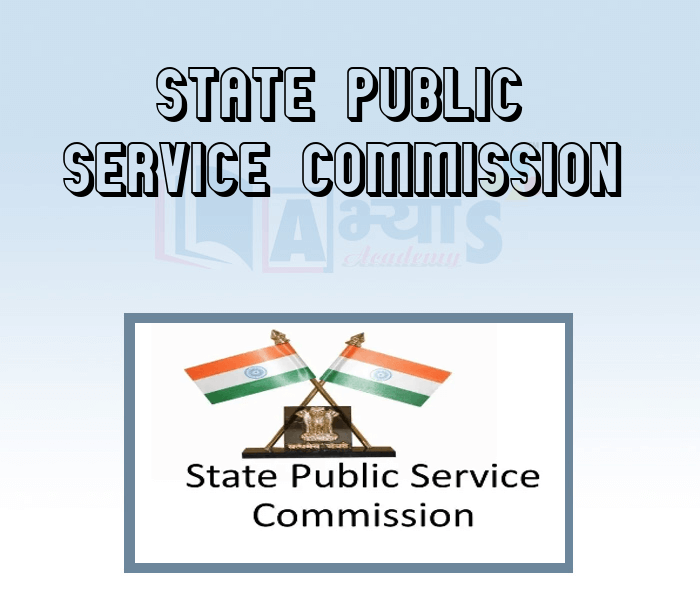State Public Service Commission











State Public Service Commission
The State Public Service Commission is a recruitment agency in the State same as the Center, the State Public Service Commission which is a constitutionally independent body.
The constitutional provisions in relation to the State Public Service Commission are from Articles -315 to 123 to 323 in Part 14 of the Constitution. There will be a State Public Service Commission for each State
Commission Structure
Term of Office
State Public Service Commission Chairman and members will hold office from the date of joining the post till 6 years or 62 years of age, whichever is earlier
State Public Service Commission Chairman and members will hold office from the date of joining the post till ___________________. | |||
| Right Option : C | |||
| View Explanation | |||
According to ____________________, Appointment and tenure of members of the State Public Service Commission. | |||
| Right Option : A | |||
| View Explanation | |||
Which of the following are correct : (a) The constitutional provisions in relation to the State Public Service Commission are from Articles -315 to 323. (b) The term of the Speaker and the members is 5 years or 62 years of age whichever is earlier. (c) On 1 June 2011, the number of members of the Public Service Commission was increased from 5 to 11. | |||
| Right Option : A | |||
| View Explanation | |||
Students / Parents Reviews [10]
My experience with Abhyas academy is very good. I did not think that my every subject coming here will be so strong. The main thing is that the online tests had made me learn here more things.

Hiya Gupta
8thA marvelous experience with Abhyas. I am glad to share that my ward has achieved more than enough at the Ambala ABHYAS centre. Years have passed on and more and more he has gained. May the centre flourish and develop day by day by the grace of God.

Archit Segal
7thIt was good as the experience because as we had come here we had been improved in a such envirnment created here.Extra is taught which is beneficial for future.

Eshan Arora
8thOne of the best institutes to develope a child interest in studies.Provides SST and English knowledge also unlike other institutes. Teachers are co operative and friendly online tests andPPT develope practical knowledge also.

Aman Kumar Shrivastava
10thIt has a great methodology. Students here can get analysis to their test quickly.We can learn easily through PPTs and the testing methods are good. We know that where we have to practice

Barkha Arora
10thMy experience with Abhyas is very good. I have learnt many things here like vedic maths and reasoning also. Teachers here first take our doubts and then there are assignments to verify our weak points.

Shivam Rana
7thMy experience was very good with Abhyas academy. I am studying here from 6th class and I am satisfied by its results in my life. I improved a lot here ahead of school syllabus.

Ayan Ghosh
8thBeing a parent, I saw my daughter improvement in her studies by seeing a good result in all day to day compititive exam TMO, NSO, IEO etc and as well as studies. I have got a fruitful result from my daughter.

Prisha Gupta
8thIt was a good experience with Abhyas Academy. I even faced problems in starting but slowly and steadily overcomed. Especially reasoning classes helped me a lot.

Cheshta
10thI have spent a wonderful time in Abhyas academy. It has made my reasoning more apt, English more stronger and Maths an interesting subject for me. It has given me a habbit of self studying
